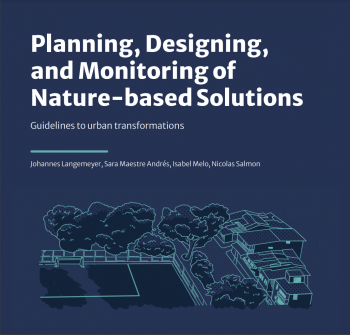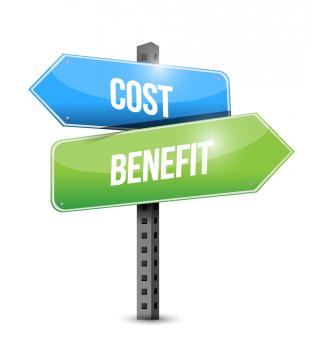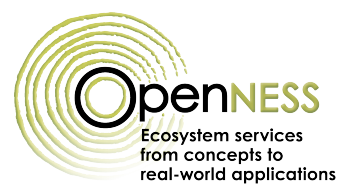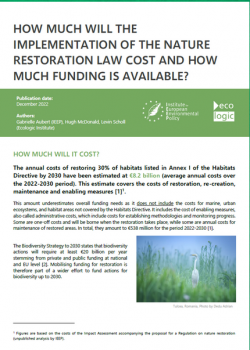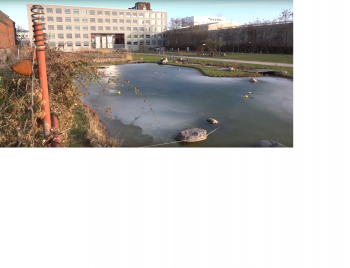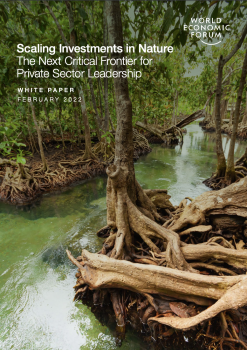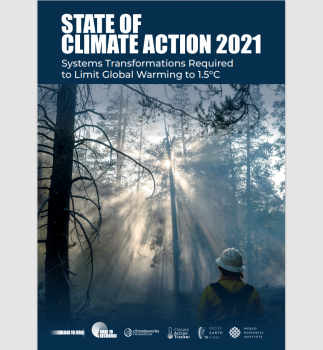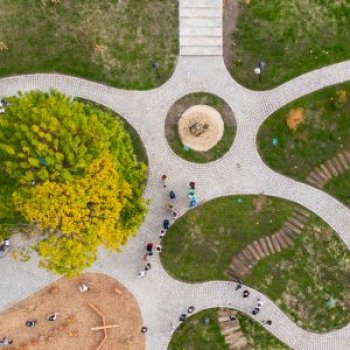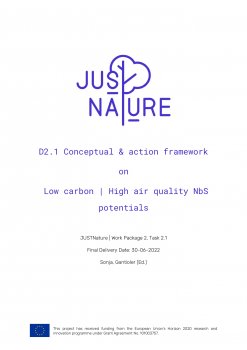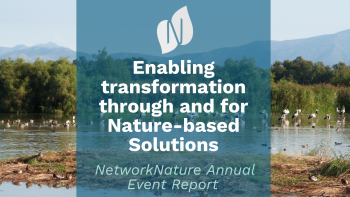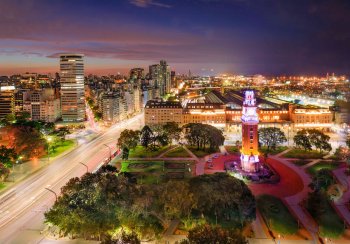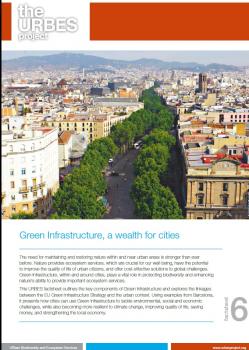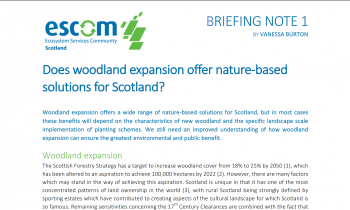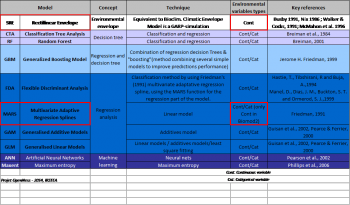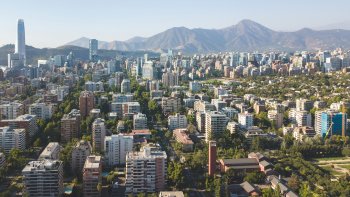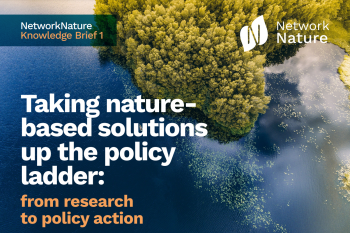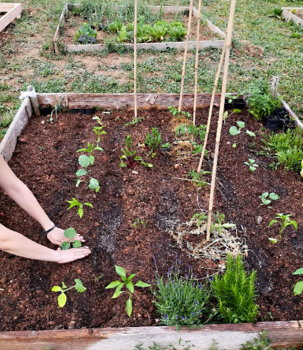Marketplace
Planning, designing and monitoring of nature-based solutions: guidelines to urban transformations
Contemporary urban planning faces multiple challenges that require innovative and holistic solutions. Rapid urbanisation, climate change, social inequalities and environmental degradation are some of the pressures facing cities. Urbanisation increases the demand for infrastructure and services,
URBAN GreenUP Barriers and Boundaries Identification
This deliverable investigates the experiences and approaches of the URBAN GreenUP cities with the identification of the barriers and boundaries in terms of implementation of Nature-Based Solutions. It provides detailed descriptions of potential barriers and boundaries under the following
Cost Benefit Analysis (iodine): Land-use typologies for strategic planning
The tool is intended to be used primarily for strategic planning (thinking about different management scenarios), for developing business cases, for reporting impacts, and for supporting instrument design. It is best applied at a broad scale. It is not suited to detailed analysis of short-term or
Method Factsheet - Smartphone App
The MapNat tool is designed to be applied by citizens and scientists who are interested in mapping the use of mainly cultural, but also some provisional and regulating, services and disservices. MapNat enables its users to map ES in three different ways as points, lines or areas on a map on their
How Much Will the Implementation of the Nature Restoration Law Cost and How Much Funding is Available?
The EU Commission published its proposal for a new Nature Restoration Regulation in June 2022. In this context, IEEP and Ecologic Institute – as part of the Think Sustainable Europe network – published a series of thematic policy briefs to inform Members of the European Parliament and other
Az esővízhasznosítás és szürkevíz újrahasznosítás lehetőségei a klímaváltozás hatásainak csökkentésében
A klímaváltozás okozta hidrogeológiai kockázatok miatt az európai városok egyre gyakrabban szembesülnek a kapcsolódó problémákkal, akár hirtelen áradások vagy éppen a vízhiány képében. A Körforgásos Városi Vízgazdálkodás projekt (CWC) célja hogy segítse a városokat az elavult városi infrastruktúra
Scaling Investments in Nature
This report, published by the World Economic Forum’s Global Future Council on Nature-Based Solutions, takes a practical look at the investment landscape for nature and nature-based solutions. In doing so, it charts out two complementary pathways for private-sector stakeholders: one, to mainstream
State of Climate Action 2021: Systems Transformations Required to Limit Global Warming to 1.5°C
This report from the Systems Change Lab is a joint effort of the High-Level Climate Champions, Climate Action Tracker (CAT, an independent analytic group comprising Climate Analytics and the NewClimate Institute), ClimateWorks Foundation, the Bezos Earth Fund, and World Resources Institute. It
Nature-based Placemaking in High-Density Cities
Ecostack Innovations has just released a new publication with recommendations for Nature-Based Placemaking in High-Density Cities. Through this document, they are sharing some of the learning experiences from the implementation of nature-based placemaking in high-density cities based on our work
Report knowledge base/action framework Low carbon | High air quality NbS potentials
As the acronym already indicates, JUSTNature introduces the normative notion of justice. An initial analysis of the scope of nature-based solutions and the role of justice suggests that issues of social and environmental justice are only considered peripherally, and that so far no dedicated
NetworkNature Annual Event Report 2023: Enabling transformation through and for Nature-based Solutions
The report summarises the key outcomes of the NetworkNature Annual Event 2023 “Enabling transformation through and for Nature-based Solutions”, which took place on 8th June 2023, at the Flagey Building in Brussels and brought together more than 150 participants to discuss the transformative nature
Co-learning Forum Handbook for application of the Co-learning Forum methodology
This handbook is a how-to guide for implementing Co-learning Forums, a platform for co-learning and co-production of knowledge, and includes key methodology and tools for organisation and facilitation, in both digital and face-to-face participatory activities. The methodology is grounded in the
Green Infrastructure, a wealth for cities - URBES Factsheet #6
This URBES factsheet outlines the key components of Green Infrastructure and explores the linkages between the EU Green Infrastructure Strategy and the urban context. Using examples from Barcelona, it presents how cities can use Green Infrastructure to tackle environmental, social and economic
A practical guide to using co-production for nature-based solutions (+ready-to-use materials)
This guidebook offers a practical approach and toolbox for designing and implementing your own co-production processes. It presents co-production as a new governance approach for working on nature-based solutions in cities and offers a practical framework for designing your own co-production
Does woodland expansion offer nature-based solutions for Scotland?
Woodland expansion offers a wide range of nature-based solutions for Scotland, but in most cases these benefits will depend on the characteristics of new woodland and the specific landscape scale implementation of planting schemes. We still need an improved understanding of how woodland expansion
Method Factsheet - Species Distribution Models
Species distribution models (SDMs) (Franklin, 2009) have shown great potential in helping to achieve conservation planning goals by refining our knowledge of species distributions (Jetz et al., 2012). SDMs extrapolate species distribution data in space and time, usually based on a statistical
CONEXUS Policy Brief 6 - Moving towards greener cities: Strategies to develop green spaces in vulnerable neighbourhoods
This policy brief explores the pressing need to address the inequitable distribution of green spaces in cities. The core case study will be the experience of a pilot project in Conchalí, Metropolitan Region of Santiago de Chile, which offers insights on strategies to address the challenges to
Technical Guidance on Comprehensive Risk Assessment and Planning in the Context of Climate Change
The Technical Guidance on Comprehensive Risk Assessment and Planning in the Context of Climate Change provides orientation on how risks in the context of climate change can be comprehensively and systemically addressed through risk assessment. Decision-making, planning, and integrating
NetworkNature Knowledge Brief: Taking nature-based solutions up the policy ladder - from research to policy action
This Knowledge Brief produced by NetworkNature aims to disentangle the complexities associated with the integration of research and policy with regards to nature-based solutions (NbS) implementation and mainstreaming. The brief provides an overview of the NbS knowledge gaps resulting from an
CONNECTING NATURE FRAMEWORK A CORUÑA: AN URBAN GARDENS GREEN NETWORK
The CN Framework, together with the valuable support from project partners, has provided the city with the tools to successfully develop the CN Exemplar in the three phases of Planning, Delivery and Stewardship
- ‹ previous
- 41 of 45
- next ›

